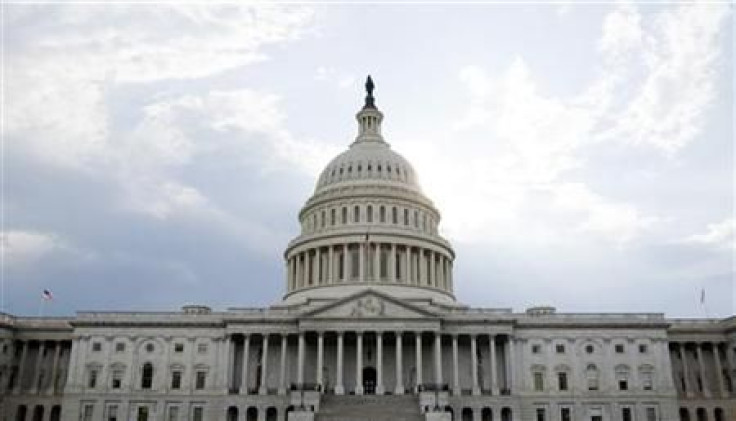Payroll Tax Cut: Republicans Propose Cuts in Federal Work Force

Congressional Republicans on Wednesday proposed an extended pay freeze for federal workers' wages as a counter to Democrats' proposal to fund a payroll tax holiday with a marginal tax rate increase.
The plan was immediately deemed unacceptable by Senate Democrats, who on Tuesday proposed extending and increasing the payroll tax cut by slashing it half, and paying for the plan with a 3.25 percent increase on incomes over $1 million.
This bill will provide some relief to struggling workers who continue to need it but without raising taxes on job creators, which is what the Democrats' proposal would do, said Senate Republican Leader Mitch McConnell, according to Reuters.
The GOP's proposal would find federal funding by terminating an unspecified amount of federal employees, freezing their pay for another three years, and enforcing tougher qualifications for social safety net programs such as Medicare, food stamps and unemployment.
The plan was offered up by U.S. Sen. Dean Heller, R-Nev., who estimated it would garner $222 billion in savings, and quickly championed by Republican leadership. It would force high-income Americans to pay the full cost of Medicare benefits, and not allow them access to unemployment compensation and food stamps.
GOP Favors Tax Cuts, Except This One, But Reverses Stance
The GOP expressed initial doubt that the tax cut merited extension, but quickly revised their stance. But they still oppose an increase on marginal tax rates, which they say is a strike against job creators.
Republicans have said that extending the payroll tax break is a potential area of common ground, but coupling it with a job-killing tax hike on small businesses makes no sense whatsoever. said Michael Steel, a spokesman for the House Speaker John Boehner, when the Democrats' proposal was first announced. It looks like Washington Democrats are playing politics with American jobs -- again.
On Wednesday, McConnell addressed the issue from the Senate floor, saying Republicans will put aside their misgivings about the payroll tax cut because it will give some relief to struggling workers who continue to need it.
Senate Majority Leader Harry Reid, D-Nev., welcomed the Republicans' newfound support for the cut.
Reid's spokesman Adam Jentleson said, The Republican proposal cannot pass the Senate as it stands, but now that Republicans have reversed their position on this middle-class tax cut, we look forward to working with them to negotiate a consensus solution, according to Reuters.
Democrats oppose the proposals attempts at freezing federal worker's pay, which would affect civilian employees at the executive branch, as well as Congressional staffers and members of Congress themselves.
This is an attempt to single out and scapegoat federal employees who had nothing to do with the economic problems the country's facing while refusing to ask the very well-off in this country to share the responsibility, said U.S. Rep. Chris Van Hollen, D-Md, according to Businessweek.
On Wednesday night, President Barack Obama sounded a cautiously hopeful tone that a deal can be worked out at a fundraiser in New York, according to Reuters.
It is possible that we see some additional progress over the next couple of weeks that can continue to help strengthen the economy and get us through what has been a very difficult period, not just for the United States but obviously for the world economy, Obama said, later calling out Republicans as facing a seemingly simple choice. Are you going to cut taxes for middle class and those who are trying to get into the middle class or are you going to protect massive tax breaks for millionaires and billionaires?
The payroll tax holiday is a $265 billion chunk of Obama's $477 billion jobs plan, and has become a bulwark issue in an upcoming federal budget battle. Congress has until Dec. 16 to propose further funding for the federal government otherwise it could possibly face a shutdown.
© Copyright IBTimes 2024. All rights reserved.











